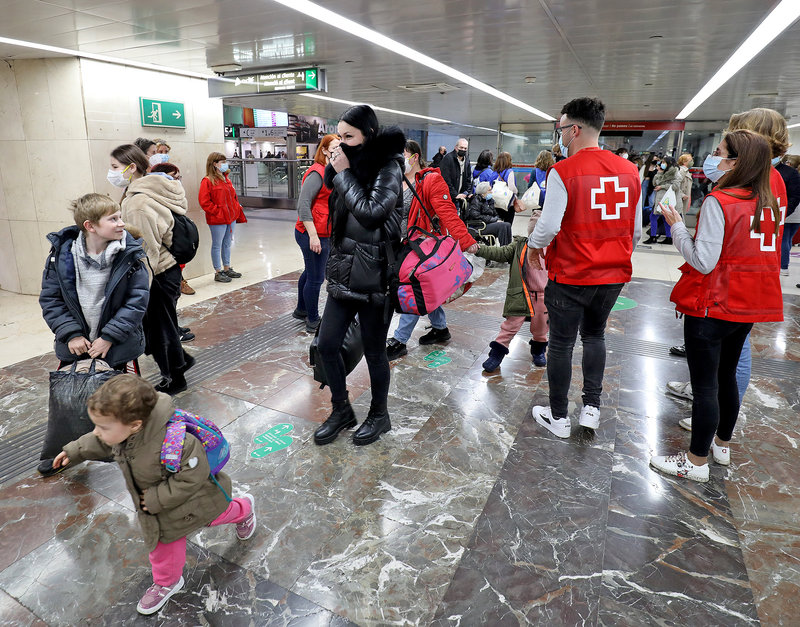THE LAST WORD
Fighting the good fight
US World War II veteran Major Dick Winters is widely attributed with the quote: “Wars do not make men great, but they do bring out the greatness in good men.” Even if you’re lucky enough not to have experienced war, just watching the Steven Spielberg film Schindler’s List, for example, shows how war can bring out the best in people. Sadly, the best is usually overshadowed by the worst, but that does not make the braveness, generosity and compassion that good people can show during times of war any less welcome or praiseworthy.
Ukraine is now at war after Vladimir Putin’s regime in Russia launched an all-out invasion of its neighbour. We’ve heard about the bombings, the casualties and the spirited resistance shown by the Ukrainians, but we’ve also seen near unanimity of support for them. What’s more, as over a million Ukrainian civilians have fled the war looking for safe refuge, we’ve seen many places, Spain and Catalonia among them, stepping up to offer help.
In this month’s magazine (see page 14) we have a heartening tale of solidarity shown by a group of Catalan friends who raised money and got together 16 vehicles so they could run their own humanitarian convoys to Romania and bring Ukrainian refugees back with them to Catalonia. If there’s any antidote to conflict and war, surely it’s this type of selfless attitude in which people refuse to stand by and watch the suffering of others and actually start doing something to help.
Meanwhile, we see that the Spanish and Catalan governments are mobilising to help the refugees, and there is now a reception centre open in Barcelona. The Catalan government says there are more than 12,000 Ukrainians in Catalonia who have fled the war, while the Spanish government has so far granted over 10,000 resident permits to Ukrainians, of which more than 1,200 are in Catalonia.
All of this is an example of how war can bring people together, promote a humanitarian outlook and foster a sense of brotherhood among people who may be separated by thousands of kilometres, a language, a culture, and a history.
Yet I couldn’t help thinking that while the response to the Ukrainian crisis has been near impeccable, it also seems exceptional.
The recent civil war in Syria, for example, displaced over 13 million people, according to UN estimates, with five million of these desperate people seeking refuge abroad. While there were notable exceptions, on the whole I didn’t see our western societies mobilising their resources to help these people in quite the same enthusiastic way as they are now doing to help the Ukranians. A more common symbol of that migrant crisis, as it was characterised, was the Open Arms ship being denied the right to dock in a European port because no one wanted to take responsibility for those women and children fleeing a different but just as deadly conflict.
At the same time, the Caminando Fronteras NGO estimates that 12 people a day died or disappeared in the Mediterranean while trying to reach Spain in 2021, more than double the total for the previous year. Over 200 of the more than 4,000 refugees who perished were children. In the case of these people, the attitude seems to be more along the lines of “not my problem”.


